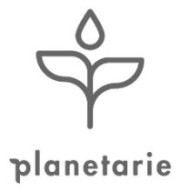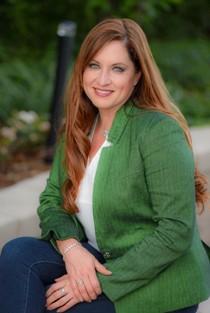
© CEOCFO Magazine -
CEOCFO Magazine, PO Box 340
Palm Harbor, FL 34682-
Phone: 727-
Email: info@ceocfocontact.com


Search





Business Services | Solutions
Medical | Biotech
Cannabis | Hemp
Banking | FinTech | Capital
Government Services
Public Companies
Industrial | Resources
Clean Tech
Global | Canadian
Lynn Fosse, Senior Editor
Steve Alexander, Associate Editor
Bud Wayne, Marketing
& Production Manager
Christy Rivers -





 -
-
With a Water Extraction Process for Cannabinoids and a Farm to Market focus, Planetarie LLC is creating Safer Products and Differentiating Themselves from other CBD Producers
 Stacy Cason
Stacy Cason
CEO
Planetarie LLC
Contact:
Stacy Cason
970-
Interview conducted by:
Lynn Fosse, Senior Editor
CEOCFO Magazine
Published – July 11, 2022
CEOCFO: Ms. Cason, we spoke about two years ago. The headline on the Planetarie interview was Water Extracted Cannabinoids are the Future, better for People, Planet and Plant. Where are you with the concept today; does the world understand yet?
Ms. Cason: A few more since two years ago but not the masses quite yet. We are still working hard on brand awareness and outreach, so it is less foreign of a concept and specifically the CBDA is catching on a little bit more now as people are starting to learn and become more familiar. Our big differentiator is that we are keeping whole plant full-
CEOCFO: Do you see the more plant-
Ms. Cason: I think it is a bit of both. It is definitely the plant-
CEOCFO: Why is CBDA better?
Ms. Cason: CBDA is the way that it is made by the plant. The “a” stands for acid. What most people do not realize is that CBD is not made by the plant. CBD is the result of a chemical reaction called decarboxylation. That happens with heat or chemicals or often both. The most common way of processing in the industry is ethanol which is 10th century technology, where you soak the plants in a vat of grain alcohol which is flammable and has to be disposed of in a certain way, also there is a fire risk in the building with having too much.
You do not want the residuals in the plant, so what happens is there is a residual amount in the product and while consuming that once or twice is no big deal. But if this is a product that you are taking every day, an accumulation of those solvents can have negative impact of the body. One example is hexane, which is another solvent used for extraction. Hexane is a known hepatotoxin, so it causes damage to the liver and yet they are using that to process the CBD. It attenuates the benefits from the plant to use these chemicals.
CEOCFO: Why is this under the radar?
Ms. Cason: It is still an immature industry and unregulated. It is more that is the way it has always been done and it is more economical. There is no standard so you can do basically anything you want and that is the scary part. I think for consumer confidence it would be nice to have established standards even if they are not regulations but standards to say what is good and tolerable and what is not allowable.
CEOCFO: What about the medical community that is starting to pay more attention to CBD-
Ms. Cason: I come from that world. Most providers do not have the time day-
In the medical community, we are trained as evidence-
For example, I have a friend who is a double board-
CEOCFO: Would you tell us Planetarie’s Farm to Table philosophy?
Ms. Cason: We came up with that as an analogy for the way we process. One parallel would be carrots. You could buy carrots that have been processed, that have been in a can for two years sitting on a shelf somewhere or you could buy fresh organic purple carrots from your farmer’s market. Which carrots do you think will be healthier for you? Ours is the raw and unprocessed, like the same way it is made by the plants versus the heavily processed with chemicals.
CEOCFO: What tell us about Colorado Grown and China/Hemp?
Ms. Cason: Four years ago, when I started this company, at the time Chinese hemp was 90% of the market. Now I think we are down to about 70%. That means that for seven out of ten bottles of CBD that you buy, that plant was grown in China, processed somewhere/somehow, and imported. The chain of custody was broken, and it is unknown where it comes from.
Another differentiator for us is we have complete control from plant to final product. We know exactly when and where those plants were in the ground, and they were in Colorado. All our plants are organic. We go from the plant to the final product here in our facility in northern Colorado.
CEOCFO: What have you learned along the way?
Ms. Cason: On the grow side it is more the genetics that has changed. Geneticists are constantly working with the different strains that may have a different blend of cannabinoids and flavonoids and different plant materials. We focus more from that point forward. Because we invented this process there has been a bit of R&D over the years. Not so much in the last two years because we have dialed in the water extraction well now.
We are making additional products and we have certifications since the last time we talked, which is very rare in this space. Many people use organic hemp, but it is rare to have the whole process of extracting making products through certified organic, so having that certification is a big deal. We got it at the end of 2020. Also since the last time we spoke, we have released ten additional products and have perfected the manufacturing.
CEOCFO: What are the most popular products and what are you making that people are not recognizing yet?
Ms. Cason: Our most popular product is the softgels. I think most of our customers come from outside of the hemp / cannabis space, and they are trying it for the first time. They are more apt to take a pill, and that is something that is familiar to everyone. The second most popular product is our infusion which is comparable to tincture. The product is fast-
I think the things that people have not caught onto yet are some of our topical products such as our salve which is a great all-
CEOCFO: Are you seeking funding, investments or partnerships as you continue to grow?
Ms. Cason: Yes. We just started a Series-
CEOCFO: What is the response when you are talking with a potential partner or investor; is there something you say when the light-
Ms. Cason: I think the differentiator because CBD is such a crowded space right now. Four years ago, there was the green rush and people thought they were going to make a ton of money in this space. It is a low barrier to entry and a high turnover; it is very crowded.
Once we explain there are over 3000 CBD companies, there is one water extracted CBDA company and that is Planetarie. They then realize that there are more health benefits and then I am asked the question of why everyone is not doing this, well hopefully in time they will be, but for right now we are the tip of the spear.
I think once investors hear the value differentiator and how we have a 70% return customer rate, affiliations with Hall of Fame Olympic coaches, NFL alumni, and some really authentic endorsements, it lands with them.
CEOCFO: What affect has the COVID era had and what might you have learned that provided some insight?
Ms. Cason: We were in an interesting place in the business anyway and I do not know if it was better, it is hard to say because we were making a major pivot at the same time as COVID. That is when we launched our retail line. Prior to that we have been business-
We had made a pivot in January of 2020 and started doing formulations to make products which launched in early May of 2020. We have gone all the way to the consumer to get products that people could use to optimize their wellness and boost their own health, so maybe that was beautiful timing for us.
COVID brought awareness of health to people a little more. They were thinking they should take better care of themselves and do things to boost their immunity. We are direct-
CEOCFO: Giving back is important for you and Planetarie. How do decide where to focus your efforts?
Ms. Cason: It has been a strong belief for me personally, my whole life. There are plenty of opportunities and I look at it as another area to be strategic. For me personally, I like to focus women-
CEOCFO: How do you deal with some of the frustration in knowing Planetarie has a concept, something that is so much better for so many people and yet it is so hard to get the word out?
Ms. Cason: We will get really passionate emails or phone calls from customers that have been helped. A lot of them tend to be special needs, medically complex kids whose lives have changed from taking our products. There is a world-
Planetarie LLC | Stacy Cason | Water Extraction Cannabinoids | CBDa Products | With a Water Extraction Process for Cannabinoids and a Farm to Market focus, Planetarie LLC is creating Safer Products and Differentiating Themselves from other CBD Producers | CEO Interviews 2022 | Cannabis Companies | Medical Company | CBDa, plant-
“Our big differentiator is that we are keeping whole plant full-
Stacy Cason